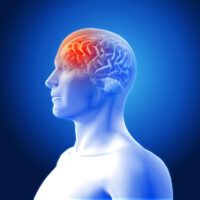In Neurology, we offer expert care for disorders affecting the brain, spinal cord, and peripheral nerves. We provide comprehensive evaluation, diagnosis, and treatment for a wide range of neurological conditions—from common issues like headaches and migraines to complex diseases such as multiple sclerosis, Parkinson’s, and Alzheimer’s. Our team uses advanced diagnostic tools and evidence-based therapies to ensure accurate treatment and better outcomes. Whether it’s managing acute emergencies like stroke and meningitis or offering long-term support for chronic conditions, we are committed to compassionate, patient-centered care. Rehabilitation, counseling, and follow-up services are integral parts of our holistic approach to neurological health.
Stroke
A stroke occurs when blood flow to a part of the brain is interrupted, either due to a clot (ischemic stroke) or bleeding (hemorrhagic stroke). This can lead to sudden weakness, numbness, speech difficulty, or loss of coordination. Immediate medical attention is critical to minimize brain damage. We also offer post-stroke rehabilitation to support long-term recovery. Preventive care focuses on managing risk factors like hypertension and diabetes.
Epilepsy
Epilepsy is a neurological disorder characterized by recurrent, unprovoked seizures due to abnormal brain activity. Symptoms can vary from brief lapses in attention to full-body convulsions. Diagnosis includes EEG monitoring and brain imaging to identify the cause and type of seizures. Treatment often involves anti-epileptic medications tailored to each patient. In refractory cases, surgical options or neurostimulation may be considered. Our specialist works closely with patients for seizure control and improved quality of life.
Meningitis
Meningitis is an inflammation of the protective membranes covering the brain and spinal cord, often caused by infections. Symptoms typically include fever, severe headache, stiff neck, and sensitivity to light. Early diagnosis through lumbar puncture and lab tests is essential for prompt treatment. Bacterial meningitis requires immediate antibiotics, while viral types may resolve with supportive care. Our facility ensures rapid intervention and advanced care support. Preventive vaccination is also part of our proactive health strategy.
Migraine
Migraines are intense, throbbing headaches often accompanied by nausea, vomiting, and sensitivity to light or sound. They can last from hours to days and significantly impact daily life. Triggers include stress, hormonal changes, certain foods, and sleep disturbances. Our physician provides a tailored approach using medications, lifestyle changes, and preventive therapies. We also offer guidance on identifying and avoiding individual migraine triggers. Chronic migraine sufferers benefit from specialized care and monitoring.
Headache
Headaches are among the most common neurological complaints and can range from mild tension headaches to debilitating cluster or sinus-related pain. Understanding the type and underlying cause is essential for effective management. Our physician conducts thorough evaluations to differentiate between primary and secondary headaches. Treatment includes pain management, preventive strategies, and addressing underlying conditions. We offer a specialized approach for patients with frequent or severe headaches. Personalized care ensures better symptom control and improved quality of life.
Guillain-Barré Syndrome (GBS)
GBS is a rare autoimmune condition where the body’s immune system attacks the peripheral nerves, often following an infection. Symptoms usually begin with weakness and tingling in the legs, which can progress to paralysis. Early diagnosis is vital, and treatment may include intravenous immunoglobulin (IVIG) or plasmapheresis. Our dedicated team provides intensive monitoring and supportive care during the acute phase. Rehabilitation therapy is crucial for regaining strength and mobility. Most patients recover, though the process can take months.
Encephalitis
Encephalitis is an inflammation of the brain, often caused by viral infections, leading to symptoms like fever, confusion, seizures, and behavioral changes. Prompt diagnosis with brain imaging and cerebrospinal fluid analysis is critical. Treatment depends on the underlying cause and may include antiviral or anti-inflammatory medications. Supportive care in a hospital setting is usually required. Long-term follow-up helps address cognitive or neurological complications.
Neuropathy
Peripheral neuropathy refers to damage to the nerves outside the brain and spinal cord, causing weakness, numbness, and pain, typically in the hands and feet. Causes include diabetes, infections, autoimmune diseases, and toxins. Diagnosis involves nerve conduction studies, blood tests, and sometimes biopsy. Treatment focuses on managing the underlying cause and relieving symptoms with medications and lifestyle changes. We provide comprehensive care for the same. Regular monitoring helps prevent complications and maintain function.
Multiple Sclerosis (MS)
MS is a chronic autoimmune disease where the immune system attacks the protective sheath of nerve fibers in the central nervous system. It causes symptoms like fatigue, vision problems, numbness, and difficulty walking. The disease can be relapsing or progressive, with periods of worsening symptoms. Diagnosis involves MRI scans and cerebrospinal fluid tests. Treatment includes disease-modifying therapies, steroids, and symptomatic management. Our team offers ongoing support, rehabilitation, and counseling to help patients live actively.
Parkinsonism
Parkinsonism refers to a group of movement disorders, including Parkinson’s disease, characterized by tremors, stiffness, slowness of movement, and postural instability. The condition results from reduced dopamine levels in the brain. Diagnosis is clinical, supported by imaging and response to medications like levodopa. Our dedicated team provides individualized treatment plans including medications, physiotherapy, and, in some cases, deep brain stimulation. We emphasize supportive care and counseling for patients and families. Regular follow-ups help manage symptoms effectively.
Alzheimer’s Disease
Alzheimer’s is a progressive neurodegenerative disorder that affects memory, thinking, and behavior, and is the most common cause of dementia. Symptoms begin with mild memory loss and gradually interfere with daily tasks. Diagnosis is based on cognitive tests, brain imaging, and ruling out other conditions. While there is no cure, medications can slow progression and improve quality of life. We provide compassionate care, support services, and guidance for caregivers. Our memory clinic focuses on early detection and intervention.
Transverse Myelitis
Transverse myelitis is a rare inflammation of the spinal cord that can cause weakness, sensory alterations, and bowel or bladder dysfunction. It may occur after infections or be associated with autoimmune conditions like MS. Diagnosis includes MRI and lumbar puncture to identify inflammation and rule out other causes. Treatment usually involves steroids and immunosuppressants. Our team ensures comprehensive neurological care, including rehabilitation and long-term follow-up. Early treatment improves outcomes and aids in functional recovery.





